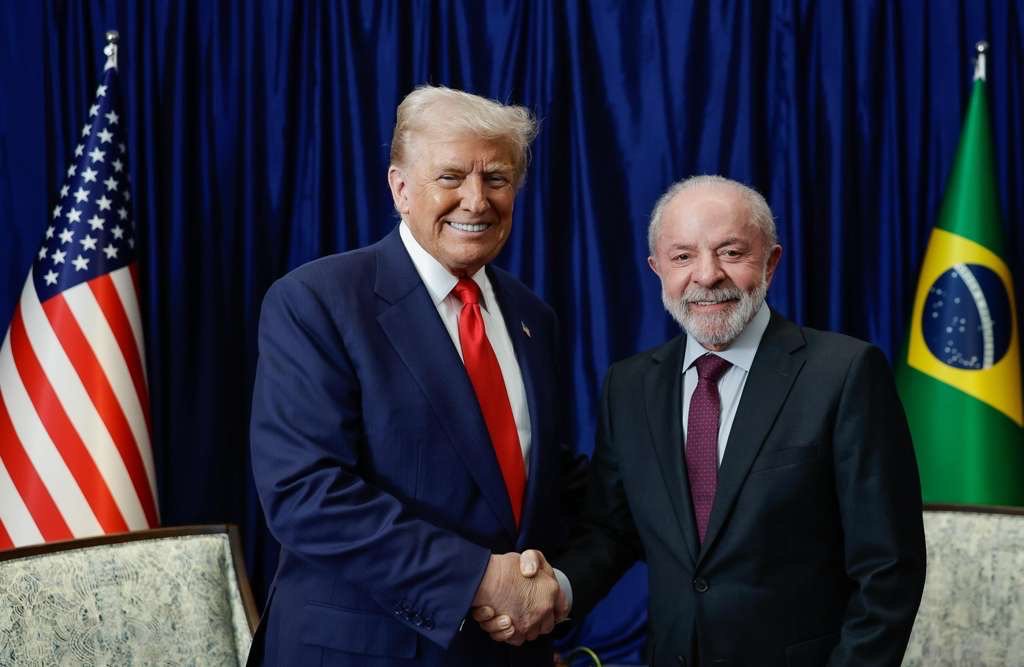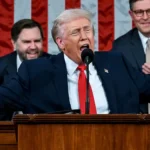
President Luiz Inácio Lula da Silva and the President of the United States, Donald Trump, held a bilateral meeting this Sunday (26) in Kuala Lumpur, Malaysia, aimed at reassessing economic relations between the two countries.
The meeting took place at 3:30 pm local time (4:30 am in Brasília), in the Kuala Lumpur City Center (KLCC), and lasted around 50 minutes. Brazilian and North American ministers and diplomats participated, in an agenda marked by the negotiation of tariffs, sanctions and Brazil’s position in regional geopolitics.
Before the meeting, Trump told reporters that he hopes for a practical outcome in the negotiations. “We will reach an agreement,” he said. Lula, in turn, indicated that dialogue tends to produce short-term results. “There will be good news,” he said as he left the place. To date, no formal details of the referrals have been released.
Tariff pressure and impact on foreign trade
The central topic of the conversation was the set of tariffs imposed by Washington on Brazilian products exported to the North American market. The surcharges affect sectors such as steel, processed meat, cellulose, agricultural derivatives and industrial components. In recent months, business entities and state governments have pressured Brasília for a solution, due to the impact on export costs and reduced competitiveness compared to suppliers from Asian and European countries.
The review of these taxes is considered one of the main priorities of Brazilian economic diplomacy in 2025. For Itamaraty, the reduction or flexibility could open space for commercial rebalancing in areas where Brazil has a high productive insertion, such as animal protein, mining and energy. The Brazilian government argues that the current level of tariffs does not correspond to the history of cooperation between the two countries and that they were increased without prior consultation.
Participation of the Brazilian delegation
The team that accompanied Lula at the meeting was made up of the Minister of Foreign Affairs, Mauro Vieira; by the Minister of Development, Industry, Commerce and Services, Márcio Elias Rosa; and diplomat Audo Faleiro, from the Presidency’s international advisory team. The focus of the delegation was to present technical scenarios and sectoral impacts of the current tariff policy.
According to sources heard by Brazilian media outlets, the Brazilian strategy prioritizes dialogue and the search for gradually applicable results, without public confrontations. The assessment is that a restricted agreement in specific areas can act as a first step towards broader discussions.
Sanctions and regional tension
In addition to tariffs, the conversation addressed the sanctions applied by the United States to Brazilian citizens and authorities, as a result of investigations linked to the attempted coup d’état on January 8, 2023. The Brazilian government is trying to reduce the scope of the measures and argues that the country has judicial institutions capable of conducting its internal processes.
Another sensitive point was US military policy in the Caribbean and on the coast of South America, especially actions aimed at Venezuela and Colombia. The expansion of North American naval operations in the region has provoked questions from Latin American governments. Brazil, which maintains diplomatic relations with Caracas and Bogotá, seeks to avoid automatic alignment with Washington or political confrontations with border neighbors.
Differences over the dollar and the Brics
The use of the dollar as the dominant currency in international trade was also on the agenda. Lula argues that Brics countries — Brazil, Russia, India, China and South Africa — can intensify the use of local currencies and create their own financial instruments to expand economic autonomy among emerging economies. The proposal has been discussed within the scope of the New Development Bank (NDB).
Trump, however, expressed contrary positions in previous statements and even indicated that he could raise tariffs on countries that reduce the use of the dollar in large commercial transactions. The divergence on the topic remains, but interlocutors say that the discussion will be resumed in subsequent technical meetings.
Reserved communication and absence of electoral topics
During the meeting, a reporter questioned Trump about a possible mention of former president Jair Bolsonaro. The North American leader simply responded: “None of your business” (“it is not in your interest”), without elaborating on the subject. The response confirmed that the meeting did not include electoral or Brazilian domestic policy debates.
The Brazilian government has sought to address the issue of relations with Washington in the institutional and economic field, without involvement in internal opposition movements.
Next steps
After the meeting, both countries should begin technical rounds to detail possible tariff changes and sectoral agreements. Brazil also hopes that the dialogue will reduce regional tensions associated with US military operations in the Caribbean and on the South American border.
Source: https://www.ocafezinho.com/2025/10/26/lula-e-trump-discutem-tarifas-e-sancoes-em-reuniao-historica-na-malasia-governo-brasileiro-espera-acordo-nos-proximos-dias/


